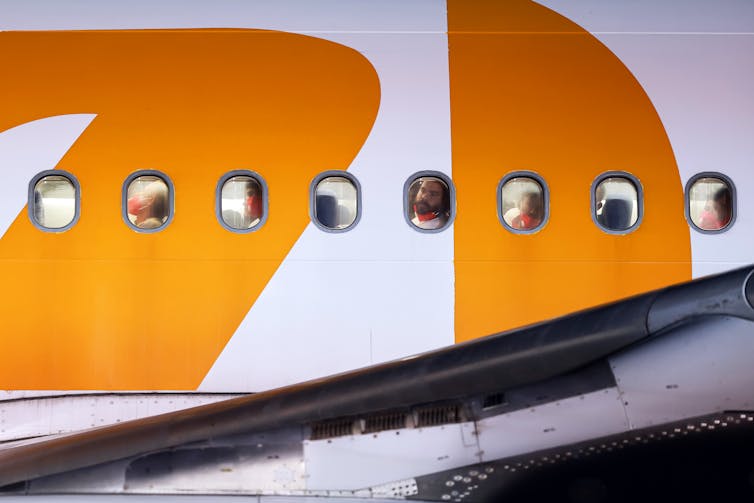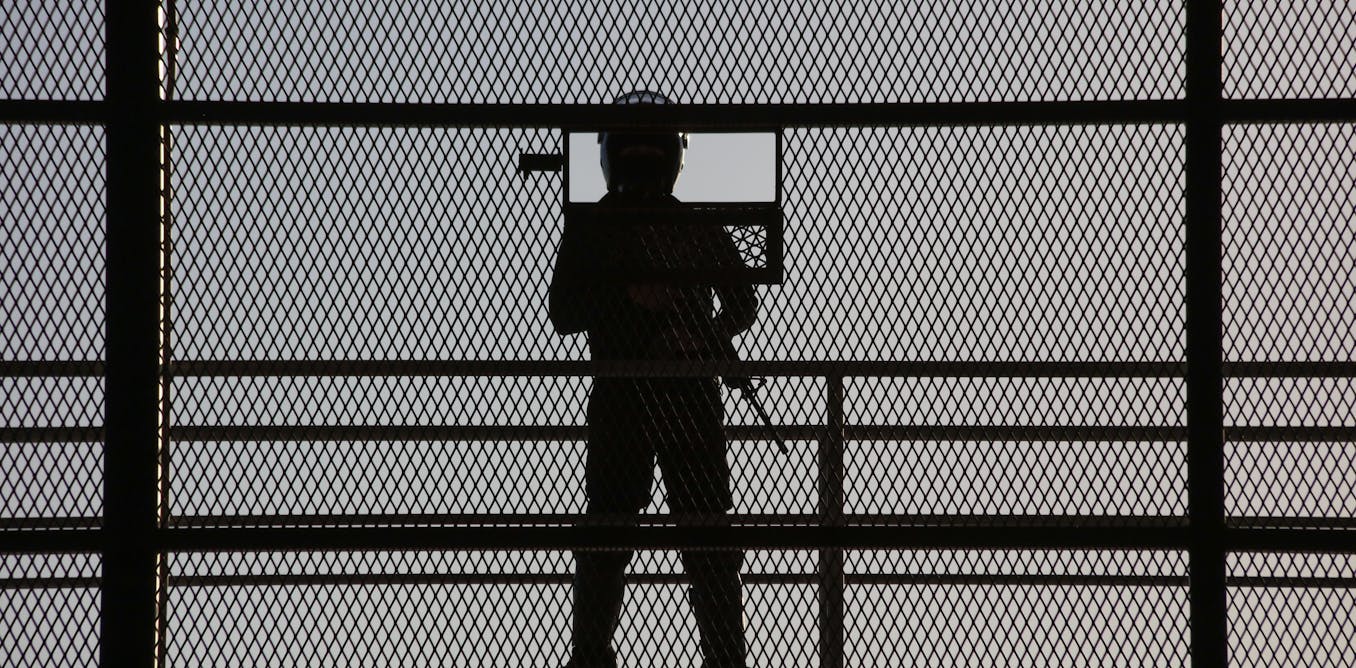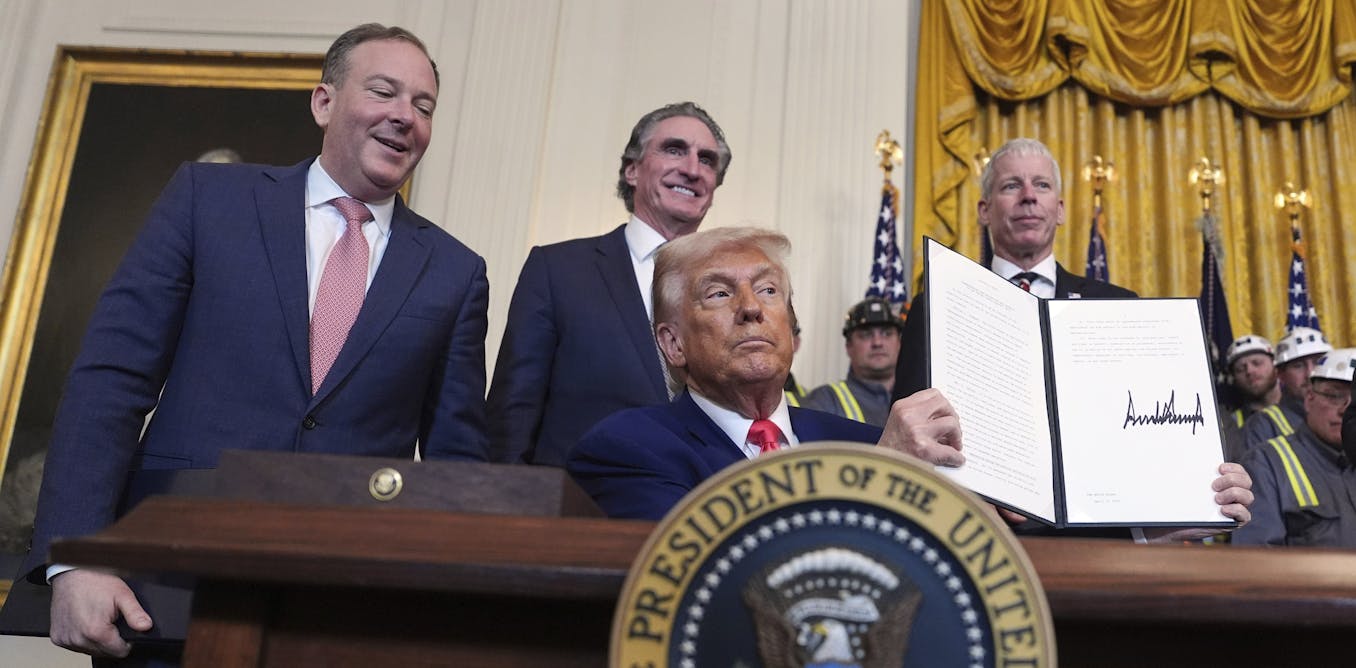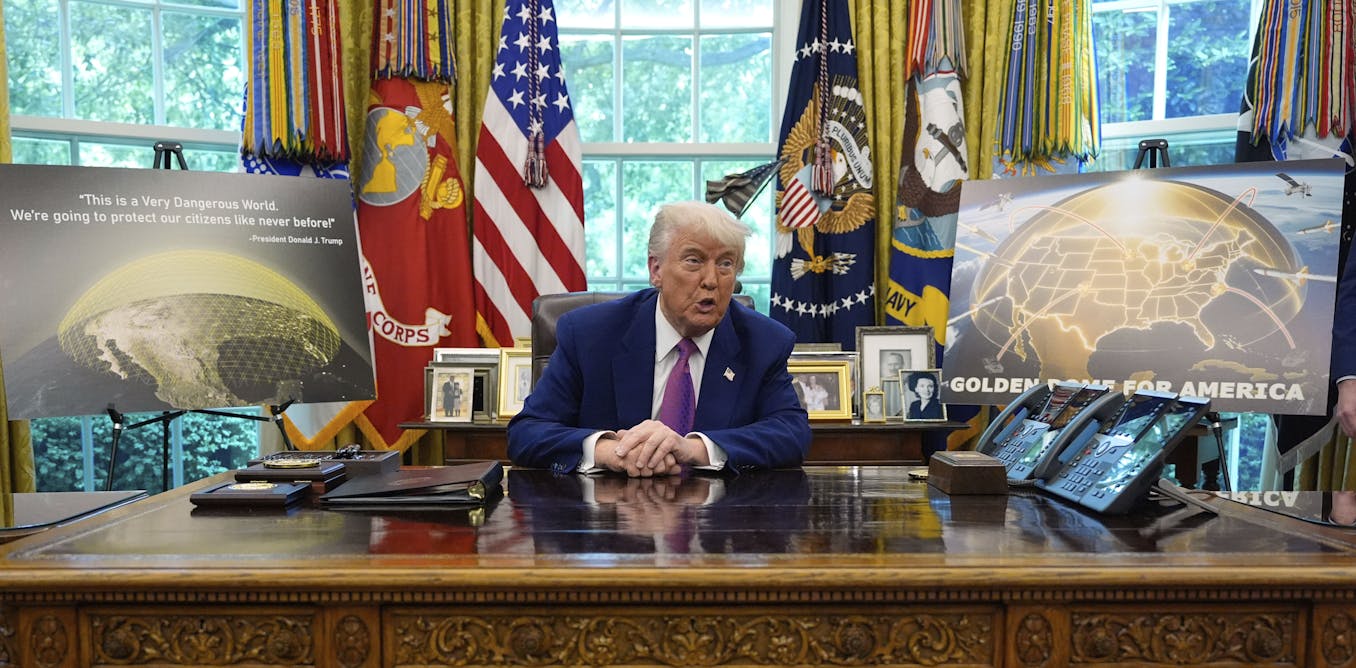President Donald Trump has claimed victory at the Supreme Court in his campaign to deport Venezuelan migrants accused by the government of being part of a foreign terrorist organization.
“The Supreme Court has upheld the Rule of Law in our Nation by allowing a President, whoever that may be, to be able to secure our Borders, and protect our families and our Country, itself,” Trump posted on April 7, 2025, calling it, “A GREAT DAY FOR JUSTICE IN AMERICA!”
A 5-4 majority of the U.S. Supreme Court had just overruled a lower court that had temporarily barred the deportations, deciding the U.S. could move ahead with its plans to send those Venezuelans to a prison in El Salvador.
Eight minutes after Trump’s post, the American Civil Liberties Union, Democracy Forward and the ACLU of the District of Columbia, three advocacy groups that represented the Venezuelan nationals in the case, also claimed the decision was a win.
In a press release, lawyers from these organizations said that the case was “an important victory” in which the court determined that the “Trump administration acted unlawfully when it removed people from this nation with no process.”
Can both sides legitimately say they won a Supreme Court victory?
As professors of legal studies, we study the Supreme Court, including how the court approaches cases involving immigration law and presidential power.
Here’s why both sides are claiming a win in the case known as Trump v. J.G.G., what the court’s opinion actually said, and what you can take away from it.
Drew Angerer/AFP via Getty Images
Why both sides are claiming victory
The complexity of the court’s per curiam opinion – an unsigned opinion of a majority of the court – allows the Trump administration and the ACLU to view the ruling in Trump v. J.G.G. from different perspectives.
This has led them both to claim victory.
Trump sees the case as a win because the justices vacated a lower court decision that had temporarily barred the deportation of the Venezuelans. This means that the federal government was victorious in the case: His administration does not have to immediately stop deporting Venezuelan nationals.
At the same time, the ACLU claims the case is a victory for them because the Supreme Court’s opinion said that the government must give people the opportunity to challenge their removal under the Alien Enemies Act – which the government had not done. The Venezuelans’ right to due process was one of the key arguments advanced by the ACLU and its partners.
On April 9, judges in New York and Texas agreed, just two days after the Supreme Court’s decision, temporarily halting the deportation of five Venezuelans until the government can clarify what type of notice it will be giving to people it intends to deport.
Eventually, the Supreme Court will need to speak definitively about whether the Trump administration can use the Alien Enemies Act to deport those it alleges to be part of a foreign terrorist organization. The court has not yet addressed that issue.
This means the court will have to deal with some tricky questions down the road. These include whether a drug cartel can be said to be engaging in an “invasion” or “predatory incursion” into the United States, which the Alien Enemies Act requires if it is to be invoked. Another issue is the extent to which the Alien Enemies Act can be used when Congress hasn’t declared war.
And a big unanswered question is whether the Supreme Court, or any court, should even answer these questions at all. The political questions doctrine, which dates to 1803, is a principle saying that courts should avoid tackling thorny political questions that are best left to Congress or the president.

Jesus Vargas/picture alliance via Getty Images
What the court decided and what it means for noncitizens’ rights
The court’s brief opinion, to which five members signed on, repeats the very basic constitutional premise that noncitizens are entitled to due process of law, even as they are being removed from the United States. Most significantly, due process includes the ability to protest their deportations before a court of law.
Justice Brett Kavanaugh’s concurrence emphasized the idea that the disagreement between the majority and the dissents is not about whether the noncitizens should have the opportunity to challenge their removal; all nine justices agree they have that right. Rather, Kavanaugh said, the justices disagreed on the question of venue, meaning the location in which these challenges should occur.
Kavanaugh’s focus on venue obscures the fact that what the justices granted to potential deportees is a significantly less robust type of judicial review than the one they were asking for.
The Venezuelans were challenging their removal as a class, because Trump had declared in a presidential proclamation that all Venezuelans over the age of 14 who were believed to be members of the Tren de Aragua cartel “are subject to immediate apprehension, detention, and removal.”
The Supreme Court majority made a group-based approach much more difficult in its April 7 ruling. It allowed for only individual, case-by-case appeals in which each potential deportee must retain legal counsel, file what’s known as a habeas corpus petition challenging their detention, and then try to convince a judge in the district where they are being held that they are not a member of Tren de Aragua in order to prevent their removal.
For most detainees, that would mean filing a petition in the Southern District of Texas, in the 5th U.S. Circuit Court of Appeals, known as the most conservative federal circuit in the country.
Unless more courts step in to prevent it, the impact of the decision will be more removals to El Salvador’s notorious CECOT prison, perhaps of people who are not actually gang members, or even Venezuelan. This has already happened in the previous round of removals under this program.
Further, at least 200 people have already been flown out of the U.S. to CECOT. Because they’ve been accused of no crime in El Salvador, they have no right to due process or legal counsel there, and no trial date set where they might prove their innocence. A recent CBS exposé also found that three-quarters of them had no criminal record in the United States either.
In the meantime, there is a separate but related case of a man, Kilmar Abrego Garcia, wrongly deported to El Salvador, despite having legal protection in the U.S. preventing his removal to his home country of El Salvador. The Trump administration is currently arguing before the Supreme Court that when it makes an error in the process of carrying out these removals, it does not have to correct it.
Not all due process is created equal. The court’s April 7 decision allowing the bare minimum process protecting people being removed makes errors more likely and thus raises the stakes for the outcome of the Abrego Garcia case tremendously.
Many parties have claimed victory in the Trump v. J.G.G. decision, but one thing is clear: It was a defeat for the rights of noncitizens in the United States.




